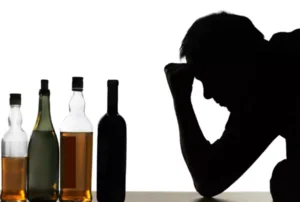
Have family members or others mentioned concerns about your alcohol consumption? Did you recently experience an incident that stemmed from your alcohol-related aggression? These situations likely spark emotions when you think about them — alcoholic rage syndrome perhaps you feel embarrassed or ashamed. No matter the reasons behind feeling anger when drinking alcohol, such behavior can be harmful. By consistently becoming angry or belligerent when you drink, you put yourself and others at risk.
Community-Based Programs
Now that we know what alcoholic rage syndrome is, can we do anything about it? In other words, can we make our inner “Tammy” or “Jimmy” (or whatever name your boozy alter-ego might have) stay away for good? If we hang out with people who throw digs at each other (or at us) or normalize alcohol-induced aggression, it’s more likely to make an appearance. Perhaps our friends play it off as funny, or maybe they downplay it due to their own insecurities — whatever the reason is, if our environment makes our “inner Timmy” feel welcome, he’s more likely to show up.
Treatment and Management Approaches
In many cases, the person experiencing alcoholic rage may not even realize the extent of the damage they are causing until it’s too late. As the prefrontal cortex gets impaired, making rational decisions becomes difficult, leading to the destruction of relationships. We understand the challenges you or a loved one might face in dealing with these consequences. Some people may be hesitant to seek treatment because they don’t want to abstain entirely. Moderation management or moderation treatment can be an effective approach, in which people learn responsible drinking habits through a structured program.

The Truth Behind Alcohol and Anger
If you follow true crime, you’ve heard about the notorious Murdaugh trials in South Carolina, with the latest being the trial of Alec Murdaugh convicted for killing his son and wife. And although nothing justifies murder, the son Paul Murdaugh was quite a character (and not in a good way). Those close to him would talk about his personality under the influence — a character prominent enough to be seen as his alter-ego, “Timmy.” What was Timmy like? Ultimately, Timmy would lead to the death of Paul’s girlfriend who drowned in a boating accident that Paul (in drunken Timmy mode) was responsible for.
Support positive habits
If you notice a connection between drinking heavily and your feelings of anger it is well worth trying this proactive approach. Moderating your drinking or abstaining altogether (especially when you are experiencing strong emotions) can help you view situations from a more clear and rational perspective. Taking these steps to address both alcoholism and anger management will contribute significantly to your recovery and overall well-being. Selecting the best care involves considering your personal needs, circumstances, and preferences. It’s essential to commit to a sobriety plan and alcohol abuse intervention to help prevent relapse and manage anger effectively.
- Of course, it’s important to set (and enforce) clear boundaries around behavior that affects you negatively, like angry outbursts or dishonesty.
- Her fields of interest include Asian languages and literature, Japanese translation, cooking, natural sciences, sex positivity, and mental health.
When it comes to anger specifically, people may experience a phenomenon called “alcohol myopia” in addition to their already heightened emotions. This scenario involves losing your sense of perception under the influence. As a result, you may be overly aggressive during a situation where you’d otherwise notice the cues that tell you to think more rationally. When combined with other evidence-based therapies, such as cognitive behavioral therapy (CBT), MAT can help prevent relapse and increase your chance of recovery. Outpatient programs are often part of aftercare programs once you complete an inpatient or PHP program. It is important for people undergoing treatment to have a stable and supportive home environment without access to drugs and alcohol.
- Researchers surveyed 175 young adults who mixed alcohol with caffeinated energy drinks about their verbal and physical aggression in bar conflicts.
- The goal is to fill the time you once spent drinking with activities that are enjoyable and engrossing.
- As well as being linked to aggression (and making it more likely you could be on the receiving end), binge drinking harms your physical and mental health.
- In many cases, the person experiencing alcoholic rage may not even realize the extent of the damage they are causing until it’s too late.
- In some cases, you can’t change an angry drunk, and you need to make the decision that’s right for you and other members of the household, especially children.
WHY ARE ALCOHOLICS SO MEAN
The characteristics of this phenomenon may share similarities with the feelings and behaviors you might experience while still drinking. This point is easier said than done, but you can achieve it with help from a treatment program. If you think about it, a crucial part of being aggressive when intoxicated is lacking self-awareness. Those who don’t think about the consequences of their actions are more likely to adversely affect themselves and others. Additionally, when you don’t reflect on mistakes you’ve made, you’ll probably repeat them.
- When anger is uncontrolled, excessive, or hurtful to those around you, you may be dealing with more than just a survival mechanism — you may be dealing with rageaholic behaviors.
- If you’re looking for help getting started, it’s wise to speak with your physician first.
- When you or a loved one experiences this condition, it can lead to an increase in violent crimes such as domestic violence, rape, murder, and assault.
- Many people may naturally become angry or upset when drinking, but it’s not necessarily their fault.
- Anger is a normal human emotion that we all feel at times and for different reasons.
Impact on your safety
One of the key reasons, according to the data, is that people continue to participate for years after they have completed the 12-step program. AA is not for everyone and there are plenty of different treatment options, but it can be successful and meaningful for those who choose it. Alcohol use disorder affects millions of people, but it often goes undetected.
Alcohol and aggression
Furthermore, the cost of addressing the consequences of violent behavior, such as medical treatments for victims and providing support services, can be a significant burden on public resources. Our residents have found relief by addressing the root causes of alcoholic rage syndrome and seeking appropriate treatment. It can be difficult to know whether or not to abstain from alcohol to support a loved one in recovery. Treatment settings teach patients to cope with the realities of an alcohol-infused world.

When Coping with Alcohol Use Disorder

Alcohol Use Disorder is a pattern of disordered drinking that leads to significant distress. It can involve withdrawal symptoms, disruption of daily tasks, discord in relationships, and risky decisions that place oneself or others in danger. About 15 million American adults and 400,000 adolescents suffer from alcohol use disorder, according to the National Institute on Alcohol Abuse and Alcoholism. But treatment and support are available to help those suffering begin to heal. For years, our team at Gateway Foundation has provided comprehensive recovery programs for people going through alcohol misuse.

